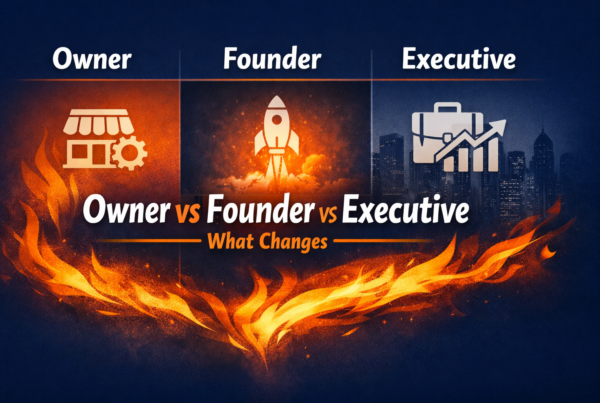Beyond Your Comfort Zone: Facing Fear or Seizing Opportunity – The Choice That Defines Your Success
Are you stuck in your comfort zone and wondering how to achieve real success? This article will show you the power of stepping beyond your comfort zone, facing fear or seizing opportunity—the choice that defines your success. Learn how these choices can define your success with practical tips and inspiring examples.
Key Takeaways
- Stepping outside your comfort zone is essential for personal and professional growth; it helps you confront fears and unlock new potential.
- Embrace challenges as opportunities to expand your skills and confidence, transforming discomfort into resilience and personal evolution.
- Building a growth mindset through small wins and continuous learning fosters adaptability, encouraging you to face new experiences enthusiastically.
Understanding the Comfort Zone

The comfort zone is a mental state where individuals feel secure and at ease, characterized by familiar behaviors and routines with low stress and risk. It’s a space where anxiety is neutralized, and performance remains steady without significant challenges or risks. While this might sound appealing, the comfort zone can hinder both personal and professional growth.
Remaining in one’s comfort zone often leads to complacency and missed opportunities for development. This stagnation can prevent you from reaching new performance heights and achieving personal evolution. Recognizing the boundary of your comfort zone is crucial for personal growth; it’s the first step toward making meaningful changes in your life by embracing discomfort.
Several factors determine a person’s comfort zone, including past experiences, habits, beliefs, and personality traits. These factors create a psychological boundary that feels safe but can also limit your potential. Bottlenecks in comfort zones are areas where being too comfortable can be harmful, such as in career progression or personal development.
People often stay in their comfort zones to avoid risk and uncertainty. However, staying too comfortable can prevent you from seizing opportunities that could lead to significant growth and success.
Grasping your comfort zone marks the beginning of both personal and professional evolution. Next, we explore recognizing and overcoming fears that hinder stepping beyond this familiar space.
“Feeling stuck in your comfort zone? Let’s break those boundaries together. Book your FREE discovery call today and start your journey toward unlimited growth!” Book Now
What Is the Comfort Zone in Psychology?
The comfort zone is a psychological concept that refers to a state of being where an individual feels safe, comfortable, and secure. It is a mental and emotional space where one’s thoughts, feelings, and behaviors are familiar and predictable. This zone is often characterized by routine, habit, and minimal risk-taking, providing a sense of stability and security. While the comfort zone is a natural and necessary part of human development, offering a sanctuary of predictability, it can also limit personal and professional growth. Staying too long in this zone can lead to complacency and resistance to change, hindering your potential for personal and professional growth.
The Dual Nature of Comfort Zones
Comfort zones have a dual nature, acting both as a sanctuary and a constraint. On one hand, they provide a sense of security and stability, allowing individuals to feel grounded and confident. On the other hand, they can limit personal and professional growth by fostering complacency and resistance to change. When individuals remain within their comfort zones for too long, they may miss out on opportunities for growth, learning, and development. Striking a balance between comfort and challenge is essential, enabling individuals to feel secure while also pushing them to grow and develop. This balance is key to achieving personal and professional growth.
The Fear Zone: Recognizing and Overcoming Obstacles

Stepping outside your comfort zone often leads you straight into the fear zone, where common fears become obstacles. These fears include the fear of failure, uncertainty, damage to reputation, and negative responses from others. Fear can act as a powerful barrier, blocking personal growth and preventing you from achieving your aspirations.
Facing these fears head-on is vital. Techniques such as the ‘Fear Inventory’ aid in confronting fears effectively. Recognizing and addressing these fears enhances your control over them, marking a crucial step toward personal growth.
Viewing stress positively can propel you out of your comfort zone. This perspective transforms stress into motivation, encouraging you to tackle challenges directly. Personal growth frequently involves confronting fears and uncertainties, turning past anxieties into driving forces that expand your boundaries.
Conquering obstacles in the fear zone is crucial. After acknowledging and tackling your fears, you can move into the learning zone, ready to embrace new challenges and growth opportunities.
“Ready to conquer your fears and unlock your true potential? Book a 15-minute call now, and let’s overcome those obstacles together!” Schedule Here
The Learning Zone: Embracing New Challenges

The Learning Zone is where the magic happens. It’s a space where you engage with new experiences, learn about new endeavors, and acquire new skills. Transitioning from the comfort zone to the growth zone requires confronting fears and embracing challenges. This is where real personal and professional growth begins.
Embarking on something new initiates entry into the learning zone. Minor adjustments to daily routines can challenge the comfort zone and spur growth, presenting a new challenge. For example, opting for a different route to work or exploring a new hobby can nudge you out of familiar territory.
Surprise is pivotal in the learning process. Unanticipated challenges can foster novel behaviors and fresh perspectives. Encountering new experiences triggers assimilation and accommodation, integrating new information into your knowledge base.
“Curious how new challenges can transform your future? Let’s talk. Schedule your complimentary call today and discover your next step!” Book Your Call
The Learning Zone Model, developed by Lev Vygotsky, emphasizes the need for challenges that balance learning without causing overwhelming stress. Finding the right level of challenge is crucial for optimal learning and growth.
Embracing new challenges disrupts habitual behaviors and fosters the formation of new beliefs. This embodies personal and professional development—venturing beyond your comfort zone into the learning zone to unlock new possibilities and potential.
Seizing Opportunities for Growth
After embracing the learning zone, it is time to seize growth opportunities. Venturing outside your comfort zone can boost productivity and help achieve personal goals. This adaptability can significantly enhance both personal and professional life for jobseekers. New experiences broaden your worldview and unveil potential new interests.
Challenges should be seen as opportunities rather than obstacles. This mindset can motivate you to embrace difficulties rather than avoid them. Building a diverse valuable skill set can enhance creativity and improve self-confidence, making you more adaptable to changing circumstances.
Consistently stepping out of your comfort zone enhances self-agency, granting more control over personal decisions. Exploring various perspectives can yield substantial personal insights and growth. Growth opportunities are abundant; it begins with taking that initial step beyond your comfort zone.
Seizing opportunities for growth is a natural part of your journey. As you continue pushing forward, you’ll find that what once felt like unfamiliar territory becomes a new comfort zone, ready to be expanded again.
“Opportunities await—but are you ready to seize them? Let’s explore your growth path. Book a no-obligation chat now!” Click Here
Self-actualization and Authentic Self
Self-actualization is the process of realizing one’s full potential and becoming the best version of oneself. It involves embracing one’s strengths, weaknesses, and passions, and living a life that is authentic and meaningful. The comfort zone can often hinder self-actualization, as individuals may become too comfortable and complacent, neglecting their desires and aspirations. To achieve self-actualization, individuals must be willing to step outside their comfort zones and take risks, embracing challenges and uncertainties. By doing so, they can discover new aspects of themselves and live a more authentic and fulfilling life.
“Are you ready to become your most authentic self? Schedule your call today and start building the life you truly want.” Book Now
Set Purposeful Goals and Explore New Opportunities
Setting purposeful goals and exploring new opportunities is essential for personal and professional growth. When individuals set goals, they create a sense of direction and purpose, which can help them stay motivated and focused. Exploring new opportunities can also help individuals discover new passions and interests, leading to a more fulfilling and meaningful life. However, setting goals and exploring new opportunities often requires individuals to step outside their comfort zones, embracing challenges and uncertainties. By doing so, they can develop new skills, build confidence, and gain fresh perspectives.
Transforming Discomfort into Growth
Experiencing discomfort outside the comfort zone can lead to significant personal evolution. As you become accustomed to facing and overcoming fears, your comfort zone begins to expand, allowing for greater opportunities.
Resilience builds when facing challenges and developing coping strategies for stress and setbacks. Turning mistakes into learning opportunities by modeling and discussing corrections shifts the view of errors from failures to growth opportunities.
Mindfulness aids in managing anxiety during new challenges. Connecting with supportive individuals during tough transitions offers encouragement and fosters personal development. Adopting a ‘not yet’ mentality emphasizes that abilities improve with practice.
Transforming discomfort into growth is a process that happens over time. Each challenge you face and overcome adds to your resilience, builds your confidence, and helps you embrace discomfort while expanding your comfort zone.
Building Confidence Through Small Wins
Setting and achieving small goals while stepping out of comfort zones can build confidence and create a foundation for future challenges. Accomplishing challenges outside your comfort zone boosts self-confidence and encourages further achievements.
Small achievements build self-belief by validating one’s capabilities in the face of challenges. Celebrating small victories is essential for maintaining motivation and boosting confidence over time. Small wins activate the brain’s reward system, increasing focus and positive energy.
Process goals, which concentrate on controllable actions, help reduce performance anxiety. Breaking large goals into smaller, manageable tasks alleviates feelings of overwhelm. Goal-setting with achievable steps demonstrates that growth is possible and motivates continued effort.
Small wins build momentum and confidence. Each minor victory brings you nearer to your larger goals, reinforcing the belief in your ability to achieve them.
“Celebrate your small wins and prepare for big victories! Book a quick call now to boost your confidence and accelerate your success!” Schedule Your Call
Developing a Growth Mindset
The distinction between a fixed and growth mindset is crucial. A fixed mindset limits achievement by making you believe your abilities are static, while a growth mindset encourages learning and adaptability by viewing abilities as improvable through effort. Fostering a growth mindset entails focusing on the process of learning rather than just the end results.
Self-awareness is essential for adapting strategies in adversity. Understanding your thought patterns allows you to adjust your approach to challenges, viewing them as growth opportunities. Setting specific, short-term goals enhances self-efficacy, crucial for a growth mindset.
Intentionally leaving your comfort zone fosters a growth mindset and encourages healthy risks, as it is just a way to develop a solution-oriented mindset that helps navigate fears, leading to significant personal transformation. Visualizing success motivates actions beyond usual boundaries.
Understanding neuroplasticity—the brain’s capacity to form new neural connections—mitigates the fear of failure, promoting movement beyond comfort. Exercising creativity fosters a growth mindset by training oneself to let go of perfectionism.
Cultivating a growth mindset is key to personal and professional development. Embracing challenges and concentrating on the learning process unlocks untapped potential and helps achieve meaningful goals.
“Ready to develop a growth mindset that transforms your future? Let’s chat! Book your complimentary 15-minute call today!” Schedule Here
Taking Calculated Risks and Stepping Beyond Your Comfort Zone
Taking calculated risks and stepping beyond one’s comfort zone is essential for personal and professional growth. When individuals take risks, they challenge themselves and push beyond their limits, developing new skills and building confidence. Stepping beyond one’s comfort zone can also lead to new opportunities and experiences, which can enrich one’s life and career. However, taking risks and stepping beyond one’s comfort zone can be daunting, and individuals may feel anxious or uncertain. To overcome these feelings, individuals must be willing to embrace discomfort and uncertainty, trusting that they have the skills and abilities to succeed. By doing so, they can develop a growth mindset, build confidence, and achieve their goals.
Real-Life Examples of Success Beyond the Comfort Zone

Jennifer Helene Popken leveraged her intuition to create a successful health program, generating $4 million in revenue and impacting students across 61 countries. Her journey shows how embracing new challenges and stepping outside one’s comfort zone can lead to remarkable success.
Amrita Joneja embraced her fears and successfully launched her marketing firm, managing all aspects of the business alone. This decision led to fruitful projects and professional growth. Erin Urban faced the challenge of transitioning from a stagnant career by applying for a higher position, which ultimately led to a promotion and career fulfillment.
Athar Jahan overcame his perfectionism and fear of failure, opening new opportunities for his content marketing company, leading to unexpected growth. Being around supportive and encouraging individuals enhances your journey beyond the comfort zone.
These real-life examples demonstrate that individuals who step outside their comfort zones often achieve remarkable success that transforms their lives. Success beyond the comfort zone is achievable with the right mindset and support.
Practical Tips for Stepping Out of Your Comfort Zone
Adopt both small, methodical steps and larger, bolder actions to exit your comfort zone. Choose a few items from your ‘uncomfortable’ list daily. Try something new at least three times to gain a well-rounded perspective.
Break tasks into smaller, manageable actions to ease the process of stepping out of your comfort zone. Reward yourself with a favorite activity, like a bike ride or a nap, after completing a challenging task.
Incorporate learning a new skill to gain confidence and personal growth. For instance, research instruments, sign up for classes, and practice 20 minutes daily to learn a musical instrument. Conquer the fear of public speaking by joining Toastmasters, speaking at an open mic, or giving a speech to friends.
Take improv classes to enhance public speaking and listening skills. Reframe nervousness as excitement to improve performance in stressful situations.
These practical tips can help you break free from your comfort zone and embrace new challenges with confidence.
Benefits of Leaving the Comfort Zone

Leaving the comfort zone leads to enhanced performance, increased resilience, boosted confidence, and new opportunities. Stepping outside your comfort zone can also lead to discovering new passions and skills that can make all the difference in significantly enhancing your career.
Creativity flourishes in unfamiliar territory, necessitating learning in new environments. Expanding the comfort zone enhances your ability to handle change and ambiguity with poise. Stepping out nurtures resilience, boosts confidence, and unlocks new growth possibilities.
Taking risks can lead to unexpected opportunities in career growth. Experiences from stepping out of the comfort zone equip you with tools for personal and professional growth. Cultivating strong social connections is crucial for fostering resilience.
Optimism can enhance resilience by fostering a sense of control over outcomes. Community provides support and motivation while taking on new challenges. Fostering creativity in new environments increases self-confidence. Trial and error when leaving the comfort zone leads to inevitable successes and builds confidence.
Summary
In summary, stepping out of your comfort zone is essential for personal and professional growth. By understanding your comfort zone, recognizing and overcoming fears, embracing new challenges, and seizing opportunities for growth, you can unlock your full potential.
Transforming discomfort into growth, building confidence through small wins, and developing a growth mindset are all crucial steps in this journey. Real-life examples demonstrate that achieving remarkable success is possible when you step beyond your comfort zone.
Practical tips can help you take those first steps, and the benefits of leaving your comfort zone include enhanced performance, increased resilience, and new opportunities. Remember, the journey may feel uncomfortable, but it’s the key to unlocking your true potential.
Embrace the discomfort, face your fears, and seize the opportunities that come your way. Your success is defined by the choices you make today.
“Ready to step beyond your comfort zone and create a life full of opportunities? Don’t wait—book your free call and take your first step today!” Book Your Call Now
Frequently Asked Questions
What is the comfort zone, and why is it important to leave it?
The comfort zone is a mental state of security and ease, but leaving it is crucial for your growth and development. Embrace new challenges to avoid complacency and unlock your true potential!
How can I overcome the fear of stepping out of my comfort zone?
To overcome the fear of stepping out of your comfort zone, start by acknowledging your fears and viewing challenges as growth opportunities. Surround yourself with supportive people and practice mindfulness to help manage your anxiety.
What are some practical tips for stepping out of my comfort zone?
Stepping out of your comfort zone is all about taking small, intentional steps daily. Tackle one uncomfortable task at a time, celebrate your progress, and remember to view nervousness as excitement—you’re building resilience!
What are the benefits of leaving my comfort zone?
Leaving your comfort zone enhances your performance and confidence, opening doors to new opportunities and passions. Embrace the challenge; it’s where growth and creativity thrive!
How can building confidence through small wins help in stepping out of my comfort zone?
Building confidence through small wins is crucial because it validates your abilities and enhances self-belief. Each victory fuels your motivation and shows that stepping out of your comfort zone leads to growth and success.



